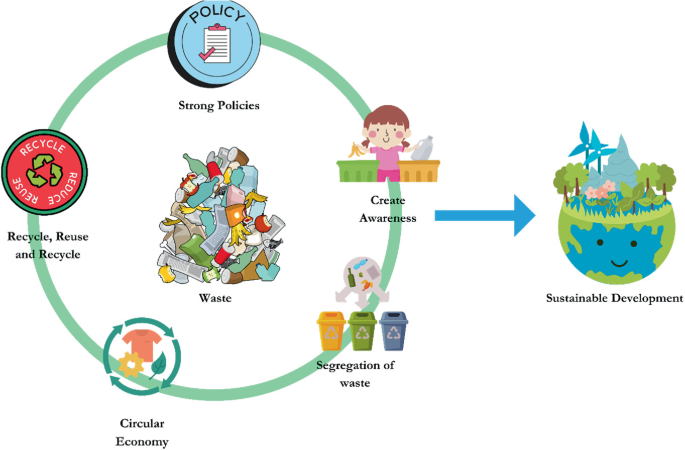The Only Guide for Reclaim Waste
The Only Guide for Reclaim Waste
Blog Article
Indicators on Reclaim Waste You Should Know
Table of ContentsExcitement About Reclaim WasteIndicators on Reclaim Waste You Need To KnowSee This Report on Reclaim WasteReclaim Waste Things To Know Before You Get ThisThe smart Trick of Reclaim Waste That Nobody is Discussing
Explore the types, occurrences, and types of liquid waste. Domestic sewage waste describes the waste and items from a residential septic system. This sort of waste is produced by people in homes, institutions, and other structures. This only includes sewage-disposal tanks that have a drainpipe field. The appropriate monitoring and disposal of domestic sewer waste require fluid waste to be moved to a sewage therapy plant where the correct techniques and equipment are used to cleanse and get rid of waste.
Commercial waste typically includes potential dangers, such as flammable materials or a blend of fluid and strong waste items, and needs an extra sophisticated and thorough disposal procedure. The disposal of commercial waste commonly includes the purification of waste before transport to make certain secure and correct disposal. Industrial waste is developed from results and overflow of industrial procedures and manufacturing.
This sort of waste can not utilize the exact same sewage administration transportation or processes as septic or commercial fluids. The industrial waste monitoring procedure calls for the assessment and screening of fluid waste prior to it undertakes the disposal process (liquid waste removal melbourne). Runoff waste is the liquid waste that originates from drainage and excess stormwater in very booming locations or cities
Overflow waste can trigger contamination and flooding otherwise taken care of appropriately. Learn more regarding sewer cleansing and waste administration. Making sure appropriate waste administration can stop calamities and reduce environmental harm. Both people in domestic settings and specialists in commercial or production sectors can take advantage of comprehending the processes and guidelines of liquid waste management.
Getting My Reclaim Waste To Work
Call PROS Services today to learn concerning our waste management and disposal services and the correct ways to take care of the liquid waste you generate.
(https://linktr.ee/leonaube33101)Do you recognize what takes place to your water when you end, flush the bathroom or drain the washing equipment? No? Well, it deserves recognizing. This supposed 'wastewater' is not just a vital resource but, after therapy, will certainly be launched to our land, waterways or the sea. Used water from toilets, showers, bathrooms, kitchen area sinks, washings and commercial procedures is called wastewater.

water used to cool down machinery or clean plant and equipment). Stormwater, a kind of wastewater, is runoff that flows from farming and urban areas such as roofs, parks, gardens, roads, paths and rain gutters into stormwater drains pipes, after rain. Stormwater moves neglected straight to regional creeks or rivers, at some point reaching the ocean.
3 Easy Facts About Reclaim Waste Shown
In Queensland, most wastewater is dealt with at sewage treatment plants. Wastewater is carried from domestic or industrial sites through a system of sewers and pump stations, referred to as sewerage reticulation, to a sewage therapy plant. Neighborhood federal governments build, keep and run most sewage therapy plants. Operators are accredited under the Environmental Management Act 1994 to discharge cured wastewater at an acceptable environmental standard right into rivers.
The Division of Natural Resources recommends city governments regarding managing, operating and preserving sewage systems and therapy plants. In unsewered locations, regional governments may call for householders to install private or household sewage treatment systems to treat domestic wastewater from toilets, kitchens, washrooms and washings. The Division of Natural Resources authorises making use of family systems when they are verified to be reliable.
In some new class, treatment of some stormwater to remove litter, sand and crushed rock has actually begun utilizing gross toxin catches. Wastewater treatment takes place in four phases: Eliminates strong issue.
Wastewater then streams into big tanks where solids resolve and are removed as sludge. Grease and residue are skimmed from the surface. Utilizes little living microorganisms referred to as micro-organisms to damage down and remove staying liquified wastes and great particles. Micro-organisms and wastes are incorporated in the sludge. Removes nitrogen and phosphorus nutrients that might cause algal blooms in our rivers and threaten aquatic life.
7 Simple Techniques For Reclaim Waste
Nutrient elimination is not available at all sewage treatment plants because it requires expensive specialised equipment. Clear fluid effluent generated after treatment may still have disease-causing micro-organisms - liquid waste removal melbourne.

The majority of wastewater moves into the sewerage system. Under the Act, local federal governments administer authorizations and permits for ecologically appropriate activities (ERAs) including wastewater releases that may have a neighborhood influence.
The Greatest Guide To Reclaim Waste
Or else, samples are taken for research laboratory analysis. Typically numerous examinations are needed to establish the degrees of each of the various toxins such as oils, hefty metals and chemicals in water. Surveillance offers factual information about water top quality and can confirm that permit conditions are being met. The info obtained with monitoring gives the basis for making water quality choices.
Report this page